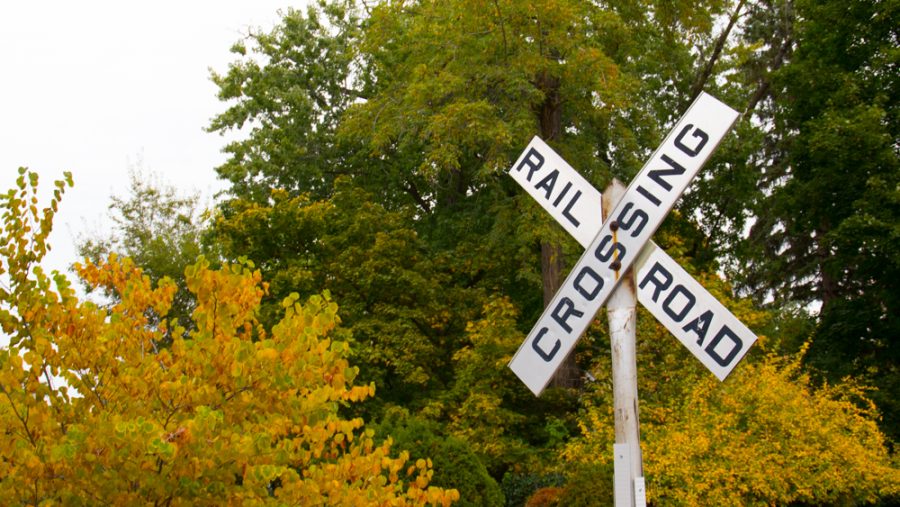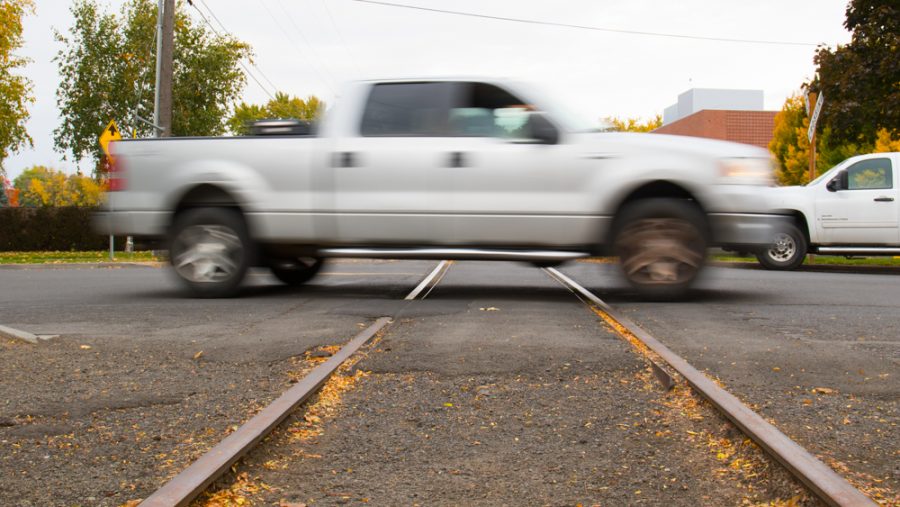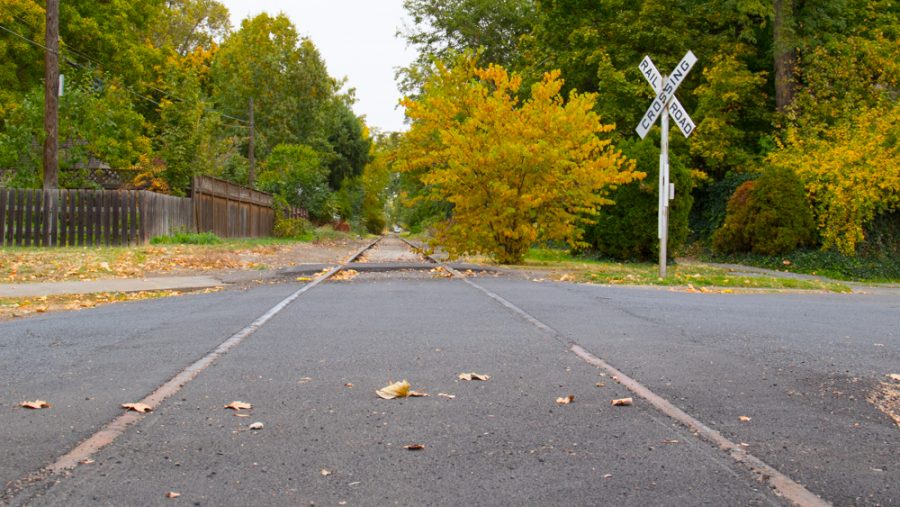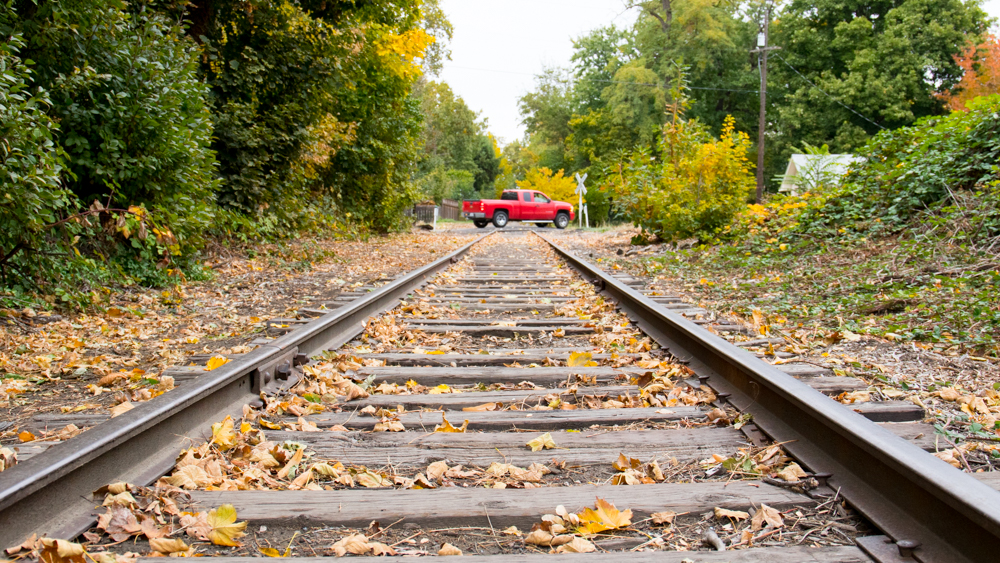Train Hopping through Time
In 1872 Doc Baker, a prominent figure in Walla Walla history, began construction of his railroad - the first point to point connecting Walla Walla to the world. 142 years later Whitman grad Elliot Burch as a sophomore embarked on a train hopping adventure that gave him a new perspective of life and privilege.
October 22, 2017
Connecting Walla Walla to the World: Doc Baker’s Railroad
Doctor Dorsy Syng Baker arrived in Walla Walla in the late 1840s. As a man with an eye for profit, he noticed that Walla Walla lacked an efficient and cost-effective mode of transport the closest steam ship port being located 30 miles away. Doc Baker proposed a railroad from towns in Eastern Washington to the Wallula gap in 1868 and began laying it in 1872.
A frugal man, Doc Baker cut corners in the production of his railroad,using According to Gary Lentz, a local train enthusiast knowledgeable about trains in the pacific northwest,Baker built this railroad for one half of what the surveyor general of Washington said it would take to do it.” He used “wooden rails with strap iron… The wood of the track, not a sturdy material for this use constantly had to be replaced and occasionally the strap iron would pop up and break a hole in one of the train cars. Known as a snake head, these loose pieces of iron would have to be tied back to the track with a strip of leather, creating the name The Rawhide Railroad.

Previous to the train the easiest way to transport cargo from Eastern Washington was by mule. With the arrival of Doc Bakers railroad, shipping cargo was now cheaper and more efficient. While mule drivers charged thirteen dollars per ton of cargo, Doc Baker only charged five.
“It was almost exclusively intended for cargo,” said Lentz But he would also take passengers, but he was not a common carrier. A common carrier is basically is one that is incorporated and designed and regulated to carry passengers. What he did was incidental to freight. To get around it he almost charged as much for a passenger as he did for a ton of freight, so he was able to kind of pull that off.”
This new railroad opened new doors for the town of Walla Walla. The speed and hauling power of trains allowed business to thrive. New and heavier equipment could be brought to town and exports could be moved quickly and cheaply.
Passengers were charged five dollars for a ride on the train, almost equal to the price of a ton of cargo. In addition to the high costs, riding Doc Baker’s railroad was not a luxurious ride. Passengers would sit on open train beds, using bags of wheat for seats. Nevertheless Baker’s railroad was an immediate success.
The passenger train eventually ceased to run. The Amtrak only runs so close as the Tri-Cities, and Spokane.
Elliot Burch’s Train Hopping Adventure
A drunken promise between two friends: Henry Cox-Raman and Elliot Burch. As they realize that this whim of hopping a train could be a reality, they begin to sort through the blogs and videos about train hopping.
“So the whole thing started like a pretty drunk conversation,” Burch said. “Like ‘We should do this! Haha just kidding!’ and then like, Henry’s a really big train buff, you know, like how people always have their really specific interests, some will be into old cars or like you know 1930s art or whatever, Henry was really into trains. If you were driving somewhere with him and you asked him something about trains, he could talk your ear off about it. So I think it was his idea in the first place, but that got him to research it and it kind of became this, ‘Wait this is actually something we could do if we wanted to.’ And it kind of got to this point where I don’t know if either of us really wanted to do it, but we both said to each other that we wanted to do it, so neither of us was willing to say that we didn’t want to do it then.”

The two friends after lots of research decided to set out over their spring break traveling from Seattle to Everett, Everett to Wenatchee and finally Wenatchee to Spokane.
“Spring break of my sophomore year, you know we didn’t go to Miami to party,” Burch said. “We train hopped.”
The two knew there was an element of danger in their proposed trip. From getting caught to being injured while hopping on to trains. However, Elliott explained that if you only board trains while stationary, the danger is cut down significantly.
“You don’t ever really want to get on a train where it’s moving, like it’s just pretty hard to do, and that’s like a really short time window, and I feel like you’re more likely to get caught then. While it’s pretty easy to scope out your car while it’s stationary and find a good car. Well if it’s moving, you can’t really be sure if it’s a good vehicle,” Burch explained.
The planning of the trip also posed some challenges. Schedules of trains are unavailable to the public, so train hoppers are left to play it by ear.
“You can only really Sherlock Holmes your way into where you think it’s gonna go, like this one has a lot of grain on it and it’s got like a California rail line written on it–it’s probably going South. Where this one says, like that it’s a Canadian company, but we don’t want to wind up in Canada so we shouldn’t get on that train,” Burch said.

As spring break rolled around, the two prepared for their journey. At Goodwill they purchased black, dingy and durable clothes to keep them hidden and warm during their trip. Henry’s mom advised them to bring pepper spray for safety and they purchased a cigar each to get the stereotypical 1920s train hopping experience.
The morning of the journey Henry’s mom dropped the two at Seattle’s train yard. They scoped out a hidden spot in the shrubs to the side and sat down to wait, cigars in hand.
“There’s a lot of waiting involved. After two hours of waiting in the middle of downtown Seattle, we saw this train move into the station and it had an open box car, you know your typical 1920s hobo train car and it was an open door facing us. It was a perfect opportunity so we ran down and hopped in,” Burch said.
Finally aboard a train for their first leg of the journey, both Henry and Elliot were jittery with excitement and the nicotine of their cigars.
“You know there’s a rush because it’s pretty cool to go and hop on a train in the first place. Trains are actually pretty cool machines; they’re really big and super mechanical. And then we were doing something illegal and not getting caught, which is a lot of fun,” Burch said.
A few hours later, after a picturesque ride along Puget Sound, the two got off the train on a stretch of beach a few miles outside of Everett. They attempted to sleep on the beach but were quickly woken by the waves lapping at their feet and decided to make the trek into town.
“We were pretty demoralized by the time we got to Everett because we hadn’t got much sleep, and like, I like to go backpacking and climbing and stuff so I’m pretty used to being dirty, but there’s definitely something different about it when you’re in a city. You know we’re like privileged Whitman kids, so we weren’t exactly homeless, but you kind of get a sense of what it’s like. There’s kind of that whole strange aspect of being grimy and backpacking in a city,” Burch said.
After waiting for a train in Everett for a few hours, the two decided to take a Greyhound to Wenatchee to keep their timetable. In Wenatchee, they once again waited for a train to board with no avail. They decided to give a different train yard on the other end of town a try. After waiting for a while and not finding a train, they set up their sleeping bags for bed. However, they were quickly woken by the rumbling of an incoming train.
Riding on a car used to carry grains, Elliot and Henry sat on a small porch on the back of the car sandwiched between two poles arranged in a v-shape. A few hours into the ride, the train rolled to a stop in a train yard and they noticed a man checking the cars.
“As we were going in, we realized there was a guy with a clipboard writing down the serial numbers of all the cars going by or doing some kind of inspection, and he’s like looking right above our heads and Henry’s right on the side that’s exposed–right in his line of sight. So we like see him and somehow, either the guy saw us and didn’t care because he didn’t want to deal with it or Henry was able to sneak when he was looking down to write and slips around the side out of view,” Burch said.
After a close call, they decided to discard the train, which they thought was being taken apart, and hid by a close-by Budweiser distribution building. However, after noticing that cars were actually being added, they sprinted down and hopped onto the train.
A few hours later, the two finally arrived in Spokane tired and cold.
“You do see society from a very different side. People definitely kind of perceive you a little differently when you smell like crap and are walking around with a backpack,” Burch said.

